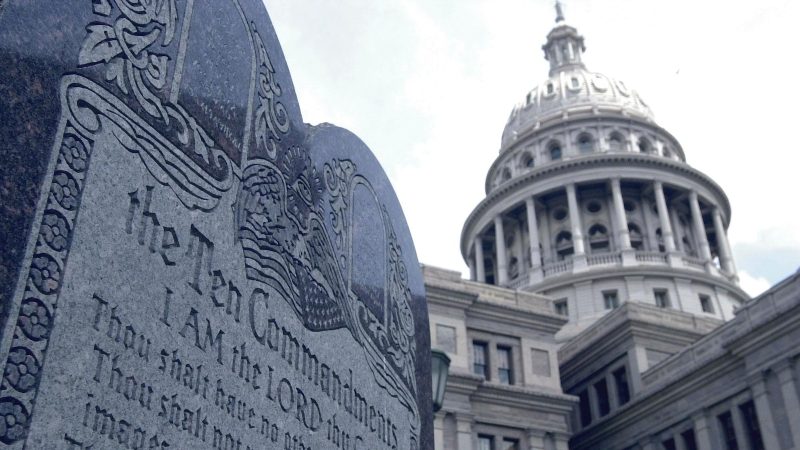
Texas is poised to become the largest state in the nation to mandate the display of the Ten Commandments in all public school classrooms. A Republican-backed bill, which recently cleared a major hurdle in the state legislature, is expected to be signed into law by Governor Greg Abbott. This move has ignited a firestorm of controversy, pitting supporters who view the commandments as foundational to American jurisprudence and education against critics who argue it violates the constitutional separation of church and state.
The bill’s supporters, including state Representative Candy Noble, emphasize the historical significance of the Ten Commandments in shaping American education and legal systems. They believe displaying them in classrooms is a vital step in preserving these values. However, this perspective is strongly challenged by opponents, including some Christian and Jewish faith leaders, who contend that such a mandate infringes on the religious freedom of students from diverse backgrounds. They highlight the potential for alienating students whose faiths do not align with the Ten Commandments, particularly given the variations in translation and interpretation across different denominations and belief systems.
The proposed legislation requires schools to display a specific, 16×20 inch English version of the commandments, a point of contention for critics who argue against a singular, potentially biased representation. Attempts by Democratic lawmakers to amend the bill to include other religious texts or multiple translations were unsuccessful. A letter signed by numerous faith leaders underscores the concerns of potentially marginalizing the millions of Texas students who may not identify with the Ten Commandments’ message.
This legislative push in Texas follows similar efforts in other conservative states, further highlighting the ongoing national debate surrounding the intersection of religion and public education. The Supreme Court’s recent decision allowing public funds to flow to religious entities has also added fuel to this contentious issue. The bill’s passage in Texas is likely to face legal challenges, echoing the situation in Louisiana where a similar law was deemed unconstitutional. Governor Abbott’s expected signature on a separate bill allowing for voluntary prayer and religious text reading during school hours further underscores the state’s push to increase religious elements within its public schools. The coming legal battles and public discourse promise to be significant.
The debate is not just about the Ten Commandments; it’s about the very nature of public education, religious freedom, and the role of faith in the public sphere. The outcome of this legislative maneuver in Texas will undoubtedly have far-reaching implications for the ongoing national conversation on these critical issues.










